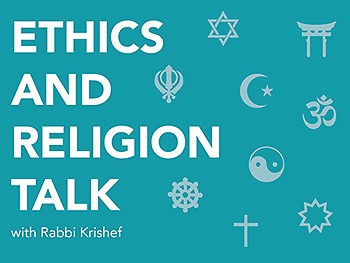The Reverend Colleen Squires, minister at All Souls Community Church of West Michigan, a Unitarian Universalist Congregation, responds:
“I often hear people say ‘I am spiritual but not religious.’ The statement seems to be saying that being religious is somehow a bad thing. I understand where this is coming from because organized religions, including my own, have done things to cause faithful people to leave the church. But to be honest when someone says to me, ‘I am spiritual but not religious’ I also hear ‘I would rather practice my spiritual beliefs by myself rather than do it in community.’ I hear the word spiritual to mean the individual and the word religious to mean community.
“Most human beings have a spiritual side, a passion, a way of grounding ourselves, a way of inspiring us to be our best selves. Cultivating our spiritual side can improve the quality of life. Being spiritual is a good thing. As a Unitarian Universalist I would define a religious community as a gathering of individuals who practice their own spiritual beliefs in community. Our UU religious communities are there to offer support to one another, to encounter the shared experiences by being in worship together, to witness each other’s life and rites of passage, and to create a welcoming community where all people feel that sense of belonging.”
Fred Stella, the Pracharak (Outreach Minister) for the West Michigan Hindu Temple, responds:
“This is a question that many Hindus are asking today due to the interest many westerners are showing. Thousands of Americans are infusing their spiritual lives with elements of Hindu practice. These include hatha yoga, meditation, shastra vidya (scriptural study), the guidance of a guru, sacred dance, ayurveda (ancient health practices) and a more Hindu understanding of Divinity. While we welcome this interest we know that so many of these seekers have no desire to join a temple or formally embrace Hinduism. For some the concern is a hesitancy to identify with any organized religion-- regardless of the fact that Hinduism is the most DISorganized major religion on the planet.
“While I would never attempt to persuade people that the path they are on is wrong, I have no issue with saying that without community spiritual growth is extremely difficult. In part it is exactly because of those things that can drive us crazy when we gather in formation. The clashing of egos, poor decisions from the top, challenging or quirky members and all the rest can, if we let them, temper us, encourage us, to be patient, forgiving, and most important—to give of ourselves to a cause much greater than our individual needs.
“While there are cave dwelling hermits in the Himalayas sequestered from society, the vast majority of Hindus are called to work together and inspire one another.”
My response:
Historically, Jews were largely not welcome in the majority Christian society. Therefore, Jews created tightly knit social groups within their religious institutions for men, women, couples, young adults, and children; we created country clubs to play golf and hospitals where Jewish doctors could practice. The Jewish Federation system functioned as a kind of Jewish United Way, to support poor Jewish communities around the world, and eventually to support the emerging State of Israel. The affiliation rate at synagogues was high; an individual who chose not to affiliate typically was rejecting a Jewish identity in favor of a path of assimilation.
Beginning in the 1970’s, as barriers to the surrounding society crumbled, a do-it-yourself Judaism began to emerge. This trend accelerated as we approached the 21st century, as the internet age enabled anyone to access everything they needed to be as Jewish as they wanted, without the need to join a formal community. Today, synagogues cannot rely on the desire to be buried in a Jewish cemetery or to celebrate a Bar or Bat Mitzvah as sufficient inducements to join. They need to create religious communities that draw people in with compelling reasons that being a part of this institution will be socially and spiritually engaging.
First and foremost, a religious community must be a place of learning. People coming from all different kinds of Jewish and non-Jewish backgrounds need to find a safe space in which to ask questions about Judaism and explore answers. A Jewish religious community understands that ours is not a monolithic tradition in which there is one definite answer to every question, but rather that we continue to explore and learn all our lives.
Second, a religious community comes together to challenge, to celebrate, and to comfort. “Comfort the afflicted and afflict the comfortable.” Although Finley Peter Dunne originally said this about the role of newspapers within society, it applies well to religious communities. It challenges its members to learn and grow in their religious practice, character, and faith. And just as it celebrates its members’ joys, it comforts them at moments of sorrow.
This column answers questions of Ethics and Religion by submitting them to a multi-faith panel of spiritual leaders in the Grand Rapids area. We’d love to hear about the ordinary ethical questions that come up on the course of your day as well as any questions of religion that you’ve wondered about. Tell us how you resolved an ethical dilemma and see how members of the Ethics and Religion Talk panel would have handled the same situation. Please send your questions to [email protected].
The Rapidian, a program of the 501(c)3 nonprofit Community Media Center, relies on the community’s support to help cover the cost of training reporters and publishing content.
We need your help.
If each of our readers and content creators who values this community platform help support its creation and maintenance, The Rapidian can continue to educate and facilitate a conversation around issues for years to come.
Please support The Rapidian and make a contribution today.
